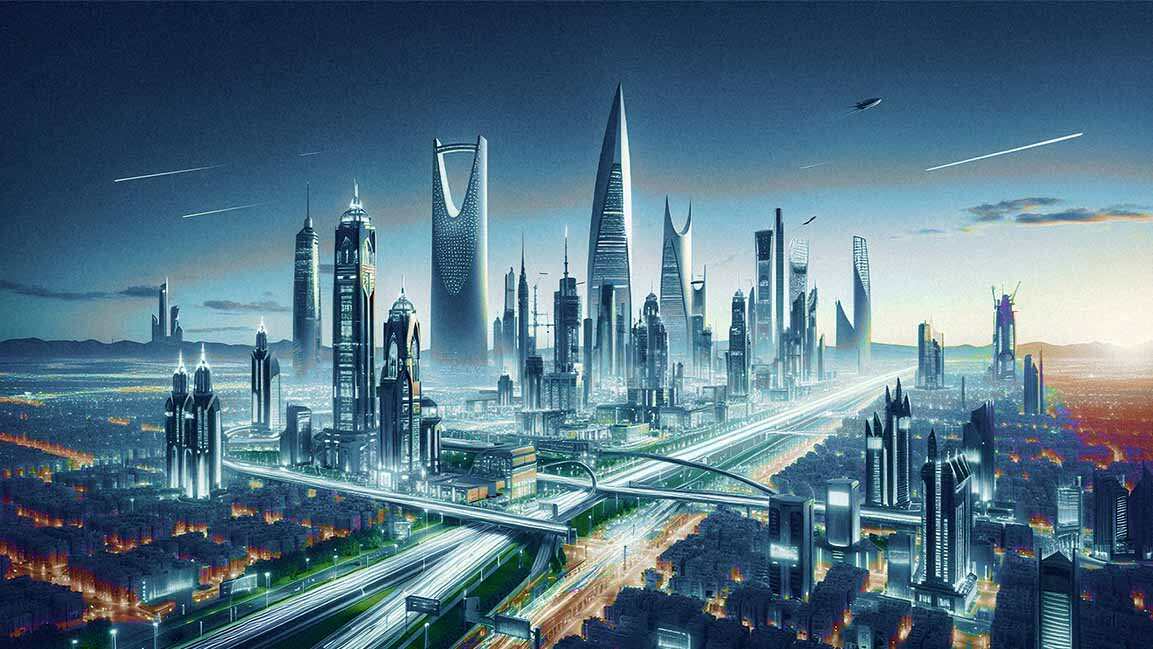Riyadh, Saudi Arabia – In a major boost to its economic diversification efforts, Saudi Arabia’s non-oil sector has recorded its highest growth in a decade. The rapid expansion of industries such as tourism, technology, finance, and manufacturing highlights the Kingdom’s progress in reducing its dependence on oil revenue. The impressive growth rate comes as Saudi Arabia accelerates its Vision 2030 initiative, a long-term economic plan aimed at transforming the country into a global investment powerhouse.
Record-Breaking Growth in the Non-Oil Economy
According to official data released by the Saudi government, the non-oil sector experienced a growth rate of over 6% in 2025, the highest in ten years. The expansion is attributed to strong government policies, increased foreign investment, and the rise of new industries.
The Saudi Ministry of Finance reported that sectors such as tourism, financial services, and digital technology have shown remarkable performance, contributing significantly to the overall GDP. The construction industry, driven by massive infrastructure projects, has also played a crucial role in this growth.
“The record-high growth in the non-oil sector is a testament to our commitment to economic diversification and sustainable development. Saudi Arabia is no longer just an oil-based economy; we are emerging as a global hub for business, tourism, and innovation,” said Saudi Minister of Economy and Planning, Faisal Al-Ibrahim.
Key Sectors Driving Economic Expansion
The significant growth in Saudi Arabia’s non-oil sector is largely driven by investments and development in the following industries:
- Tourism and Entertainment
Saudi Arabia’s tourism sector has experienced rapid expansion, thanks to large-scale projects such as NEOM, the Red Sea Project, and the opening of new historical and cultural sites to international visitors. The Kingdom aims to attract 100 million visitors annually by 2030, with tourism contributing at least 10% to the GDP. - Technology and Digital Transformation
Investments in artificial intelligence (AI), cloud computing, and smart city projects have positioned Saudi Arabia as a rising technology leader in the region. The government has partnered with global tech giants to develop cutting-edge innovations and improve digital infrastructure. - Financial Services and Investments
Saudi Arabia’s financial sector has seen an influx of foreign investment, thanks to major economic reforms. The government has introduced new banking regulations, promoted financial technology (FinTech) startups, and encouraged foreign investors to enter the Saudi market. - Manufacturing and Industrial Growth
The Kingdom is heavily investing in its manufacturing sector, particularly in automobile production, renewable energy, and pharmaceuticals. The expansion of industrial zones and smart factories has contributed to job creation and economic stability. - Construction and Infrastructure
The surge in megaprojects, including smart cities, transportation networks, and housing developments, has fueled the construction industry. Government-backed initiatives such as the Riyadh Metro and Jeddah’s waterfront redevelopment have created new business opportunities and improved urban infrastructure.
Vision 2030: A Blueprint for Economic Diversification
Saudi Arabia’s Vision 2030, launched by Crown Prince Mohammed bin Salman, has played a pivotal role in reshaping the country’s economy. The plan focuses on reducing reliance on oil revenues by diversifying the economy and fostering innovation across various industries.
As part of this strategy, the government has introduced numerous reforms, including easing business regulations, offering incentives to foreign investors, and privatizing certain state-owned enterprises. These measures have encouraged local and international businesses to invest in Saudi Arabia’s growing markets.
Foreign Investments and Business Confidence on the Rise
One of the key drivers of non-oil sector growth is the increase in foreign direct investment (FDI). Saudi Arabia has implemented business-friendly policies, such as tax incentives, streamlined business registration processes, and investment-friendly reforms, attracting multinational corporations to set up operations in the country.
According to the Saudi Arabian General Investment Authority (SAGIA), foreign investment in the non-oil sector has surged by 25% compared to the previous year. Tech companies, financial institutions, and industrial manufacturers have all expanded their presence in Saudi Arabia, contributing to job creation and technological advancement.
Challenges and Future Outlook
While the non-oil sector has shown remarkable progress, there are still challenges that Saudi Arabia must address to maintain sustainable growth:
- Workforce Development: There is a need to train and equip the local workforce with advanced skills to meet the demands of emerging industries.
- Regulatory Reforms: Continuous improvement in business regulations and legal frameworks is necessary to attract long-term foreign investment.
- Economic Diversification Risks: Although the economy is diversifying, global economic fluctuations and geopolitical uncertainties could impact future growth.
Despite these challenges, Saudi Arabia’s leadership remains confident in achieving long-term economic stability. The government continues to implement policies that support entrepreneurship, encourage innovation, and foster international trade partnerships.
Conclusion
Saudi Arabia’s non-oil sector has achieved its highest growth rate in a decade, marking a significant milestone in the country’s economic transformation. The surge in industries such as tourism, technology, finance, and construction showcases the Kingdom’s commitment to diversifying its economy beyond oil.
As Vision 2030 progresses, Saudi Arabia is positioning itself as a dynamic global economy, attracting foreign investors, creating new job opportunities, and fostering innovation. With sustained efforts and strategic reforms, the Kingdom’s non-oil sector is expected to continue its upward trajectory, paving the way for a more diversified and resilient economy.
Do follow on Instagram
Neom: Saudi Arabia’s $500 Billion Futuristic Mega-City Transforming Tomorrow



